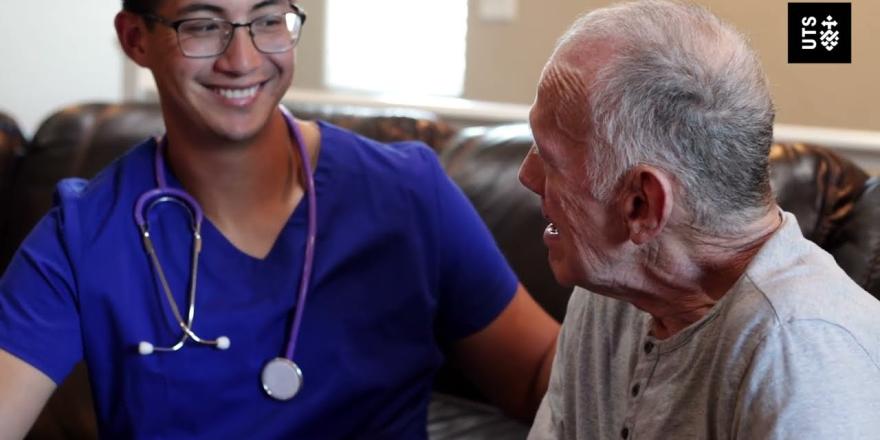The IMPACCT Rapid Program is a collaborative international quality improvement program that studies the prospective use of medications and non-pharmacological interventions commonly used in palliative care and cancer symptom management.

Professor Meera Agar: …for the National Palliative Care Strategy, it really gives direction for both Commonwealth, State and Territory governments about how to deliver high-quality palliative care to all Australians and it really provides the direction and the accountability to achieve that.
The Rapid Program is an international program, which works with clinicians across the world to develop a program in quality improvement to assess interventions that are commonly used in palliative care and it's based on methodology called Postmarketing Surveillance or Phase 4 methodology. It allows us to understand the harms and the benefits of interventions in real world to really inform clinical care.
Clinicians working in palliative care should get involved in the Rapid Program for two reasons; one is at the beginning of a series; one gets to meet with interdisciplinary clinicians and debate what benefits and harms should be included in the data collection and why that might be. The second is that you then get to understand the real-world data from that series and think about how that might affect your clinical practice and where improvements can be made.
The National Palliative Care Strategy asks us to make sure that quality improvement is built into the way we build services and so research and data are really critical to underpin the National Palliative Care Strategy. So Rapid is really contributing directly to provide meaningful data from real world practice that's going to inform that goal.
Why Rapid?
The program is called Rapid because it involves:
- Rapid data collection
- Rapid collation and analysis
- Rapid reporting
- Rapid influence on clinical practice
Aims
We aim to collect information about interventions commonly used in palliative care and cancer symptom management including:
- the therapeutic benefit of medications and non-pharmacological interventions
- the net clinical response (harms and benefits) of medications and non-pharmacological interventions
- any significant drug/drug, drug/host interactions of medications and non-pharmacological interventions.
Objectives
We achieve our aims by:
- engaging with palliative care and cancer services around the globe to increase participation in the program
- providing central coordination and support to participating sites through the IMPACCT Trials Coordination Centre
- actively seeking input from participants to nominate new series for investigation.
Methodology
The Rapid program is successful because it:
- uses minimal resources
- is timely
- involves clinicians from around the globe
- publishes each series to improve the knowledge base for clinical decision making
- focuses on interventions that are commonplace in palliative care and cancer practice.
Outcomes
Primary outcome:
- to evaluate the benefit and toxicity of medications and other interventions being used in palliative care and cancer symptom management
Secondary outcomes:
- to describe the indications for medications and other interventions being used in palliative care and cancer symptom management
- to document the frequency of prescribing of common medications and other interventions in this setting.
Who can participate?
Clinicians working with a palliative or cancer population at a location in Australia or overseas.
Why participate?
If you participate, you will:
- be collaborating with two investigator-initiated clinical trials collaboratives, Palliative Care Clinical Studies Collaborative (PaCCSC) and Cancer Symptom Trials (CST)
- develop the capacity and research capabilities of you and/or your staff who may not otherwise have the opportunity to engage in research
- be contributing to the evidence base to support clinical decision making in palliative care and cancer symptom management
- become a member of PaCCSC or CST or both - you choose which collaborative/s to join
- receive support and central coordination from the IMPACCT Trials Coordination Centre (ITCC)
Questions?
Send your questions to rapid@uts.edu.au.

